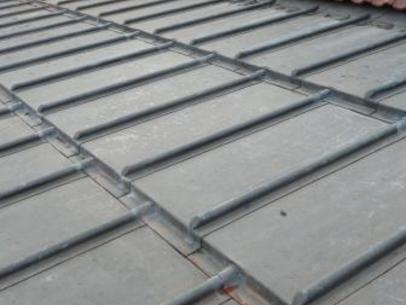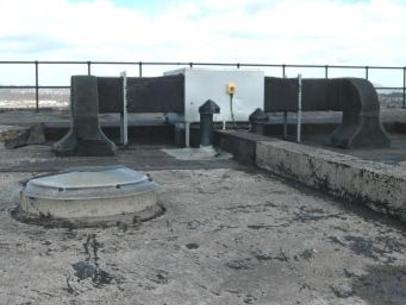The Property Factors (Scotland) Act 2011 set up a detailed Code of Conduct which property managers must adhere to. This is a summary.
Written Statement of Services
A property factor (manager) must issue a Written Statement of the services they provide:
- within four weeks of being notified of a new owner moving in or being retained
- as soon as possible after any major change (but no longer than one year after)
- within four weeks of an owner’s request
The statement must include:
The factor’s authority to act
- how initially employed – this may be because: they were named in the title deeds by the developer; or through a decision of a majority of owners; or because they were already being used by them as a property manager
- delegated authority – what they can do without going back to owners – this could include commissioning repairs up to an agreed value, for example
Services provided
- what the factor will do and the target times for taking action in each case
- other services the factor may provide at an additional fee (the amount of additional fee should be given)
Financial and charging arrangements
- the management fee and how it is reviewed
- each owner’s share of the fee, service charges, and common repair costs
- how debts will be dealt with
- the float – amount and how it is managed
- how they will collect payments for repairs not covered by the float
- how often they will send bills and how you can pay, late payment charges, etc.
Communications
- timescales for dealing with enquiries
- in-house complaints procedure
- how to complain to the First Tier Tribunal (FTT)
In dealing with you, your property factor (manager) should not be:
- misleading
- abusive or threatening – saying that they may take legal action, in reasonable circumstances, is not considered threatening
Declaration of interest
- whether they own or manage any rented flats in the building, etc.
How to end the arrangement
- how to change your property manager/factor
- notice period
- any penalty for early termination
Consulting over additional work
Procedures for consulting with owners about any work that will incur an additional cost should agree with what your title deeds say. It should cover whether owners need to have meetings or whether the property factor can take a vote from owners in writing, the majority required, etc.
Financial obligations
This covers how owners’ funds are protected and how your maintenance account is managed. There must be procedures for dealing with advance payments.
Commercial managers must have separate bank accounts for home owners’ maintenance accounts and their own business accounts. The property manager may have one combined bank account for all his clients’ funds.
Housing associations and local authorities may keep owners’ funds with their own but must have an arrangement for identifying funds of individual owners.
If the owners have a building reserve fund, it must be kept separately in its own interest-bearing account.
The property factor must provide a detailed annual round-up of accounts and supply supporting documents or invoices on a reasonable request (they can charge for copying but must tell you in advance).
When owners change factor, the former property factor must:
- provide information on the final account position within three months of being given notice (but there is leeway for bills for repair work or services which arrive late)
- return any float or excess funds
Debt recovery
Property factors must have systems in place to monitor payments, issue reminders about outstanding payments, and have a clear written procedure for recovering unpaid bills. This must include how the factor will deal with disputed debts.
They must inform non-payers of their intent to take legal action before doing so. They must not use threatening behaviour to recover debts – this applies to anyone, such as sheriff officers acting on their behalf.
Factors must advise owners what the implications are for them if other owners do not pay. They must take all reasonable steps to recover debts before charging other, jointly liable, owners.
Charges for late payment must not be excessive (related to any cost the factor incurs rather than a penalty cost).
There must be a procedure for dealing with disputed debts and if an owner goes to the FTT about the disputed debt, the factor cannot charge interest on the payment while the case is being resolved.
Common insurance
If your property factor arranges your common insurance they must:
- give owners clear information on how their share of the insurance premium is calculated, the sum insured, the premium paid, any excess that applies to the policy, etc.
- tell owners what commission or any other benefit the factor receives from taking out the insurance
- have a procedure for dealing with claims
- give owners all the information they require for making their own claims for internal damage
- show owners any competitive quotes for insurance they received (if any) on an owner’s request
- advise owners how frequently property revaluations are undertaken
Repairs and maintenance
Your factor must:
- have proper procedures for owners to notify them of any repairs, etc. required, including emergency contact details
- keep owners informed of repair progress
- show owners how contractors were appointed (on request)
- ensure contractors have public liability insurance
- disclose any commission paid by successful repair contractors and any financial interest they have with a repair contractor
- pursue defects or cases of inadequate work
- where appropriate, ask for collateral warranties (allowing owners to act if there is a problem with a contract)
If your property factor is paid to make periodic property inspections (this may be at an additional cost), then they must also prepare a programme of works.
Complaints
Your factor must have a clear written complaints procedure and not charge for dealing with complaints. Owners must follow this procedure before taking their case to the Housing and Property Chamber, which replaced the Home Owner Housing Panel. The property factor should investigate complaints and where issues are unable to be resolved, inform owners that they can take the complaint to the Housing and Property Chamber.
Where you ask to see supporting documents, the property factor should make them available free of charge if you go to their offices, but may make a reasonable charge for sending out copies.
Legal reference
Property Factors (Scotland) Act 2011, Code of Conduct for Property Factors





